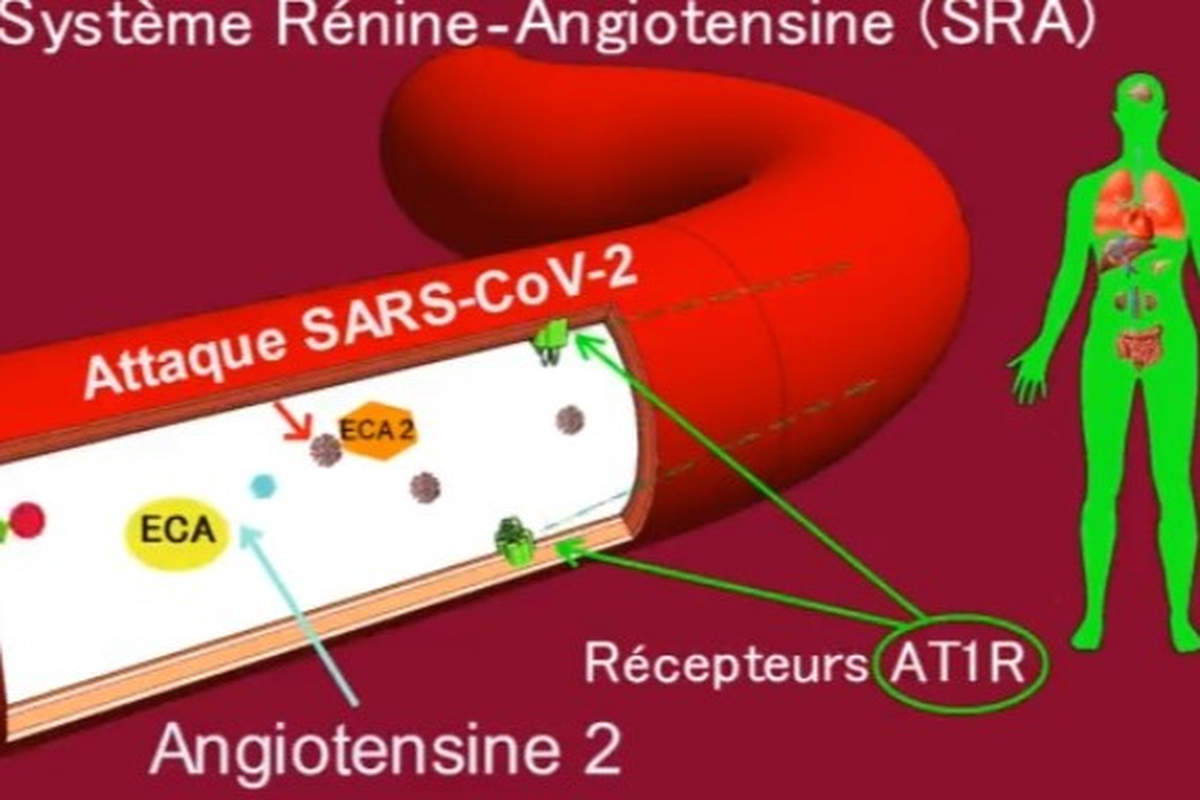A Spanish study from June 2024 suggests that two anti-hypertensive drugs are associated with a considerable reduction in the serious risk and mortality of COVID-19. They inhibit the RAS, as Jean-Marc Sabatier has always claimed.
Researchers evaluated the impact on Covid-19 of chronic treatment of hypertension with renin-angiotensin system (RAS) inhibitors: angiotensin I-converting enzyme inhibitor and AT1R receptor blocker/antagonist.
A study conducted in Galicia
The authors conducted a population-based case-control study in Galicia (northwestern Spain). Study data were obtained from medical, administrative and clinical databases.
The researchers assessed: (1) the risk of hospitalization, selecting all patients hospitalized due to COVID-19 with CRP – as cases, and a random sample of subjects without CRP – as controls; (2) the risk of COVID-19-related mortality; (3) the risk of disease progression; and (4) susceptibility to SARS-CoV-2, considering all patients with CRP – as cases, and the same subjects used in the previous model as controls.
Convincing results
The study demonstrated that ACIs and ARBs (first-line treatments for hypertension and chronic congestive heart failure) significantly reduce the risk of hospitalization and mortality.
The active substance enalapril (a member of the ACE inhibitor family, a substance responsible for arterial contraction, which increases blood pressure) was associated with a significantly lower risk of hospitalization. The use of candesartan [another antihypertensive belonging to the angiotensin II receptor antagonist family] was associated with less disease progression.
This large-scale, real-life, multi-population study from June 2024 demonstrates that RAS inhibitors (ACE inhibitors and sartan) protect against severe forms and mortality in COVID-19.
Jean-Marc Sabatier’s discoveries

The more time passes, the more scientists around the world confirm Jean-Marc Sabatier’s discoveries, published (and censored) right here since March-April 2020.
What did he discover?
- That the real culprit behind COVID-19 is the dysfunctional renin-angiotensin 2 system (RAS), a complex and ubiquitous hormonal system found in various organs and tissues of the human body, and the over-activation of its deleterious receptor AT1R. The RAS is our body’s most important physiological regulatory system. However, researchers know little or nothing about the RAS, and it is not covered (at least not in detail) in medical studies.
- That both SARS-CoV-2 and the vaccine (via RAS dysfunction and AT1R overactivation) can induce macrophagic activation syndrome (MAS), mast cell activation syndrome (MCAS), small intestinal bacterial colon overgrowth (SIBO), and/or hypokalemia (blood potassium deficiency).
- That messenger RNA (mRNA) vaccines could trigger deleterious physiological responses following interaction of the vaccine spike protein with one or more of its receptors (mainly ECA2).
- That vitamin D “slows down the physiological RAS system, which has become deleterious. Vitamin D allows the immune system to function optimally and induces the production of antiviral molecules in the host in order to fight the virus more effectively. “See Spanish study

livre-covid-19-jean-marc-sabati


